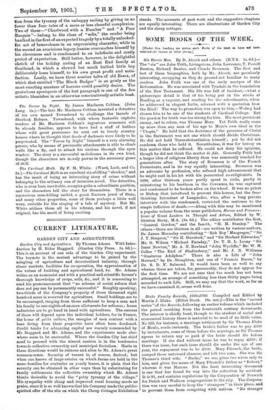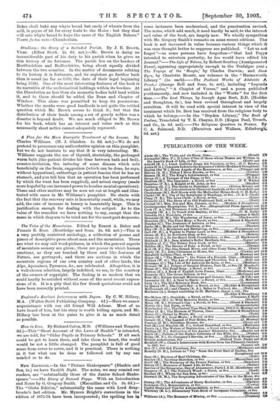Blake Family Records, 1600 - 1700. Compiled and Edited by Martin J.
Blake. (Elliot Stock. 18s. net.)—This is the "second series "of the Records, following an earlier volume which included the period reaching from the fourteenth century downwards. The interest is chiefly local, though to the student of social and economical history there is material to be used of no little value. No 129, for instance, a marriage settlement by Sir Thomas Blake of Menlo, reads curiously. The bride's father was to pay .2500 by instalments, some of them before the marriage, as Sir Thomas agrees to return any so paid if the bride should die before marriage. If she died without issue he was to repay £250; if there was issue, but such issue should die under the age of one year, the repayment was to be £100. Mary Ffrench, the bride, escaped these untoward chances, and left two sons. She was Sir Thomas's third wife. " Burke," we see, gives two wives only to him, and gives the name of Mary Ffrench's father as "Robert," whereas it was Marcus. Not the least interesting document is one that has found its way into the collection by accident. It is 91, and contains regulations by the Corporation of Norwich for Dutch and Walloon congregations in the city. The Corpora- tion was very careful to keep the " strangers " in their place, and to prevent them from competing with natives. "No stranger
Baker shall bake any whyte bread but onely of wheate from the mill, in peyne of 4d. for every loafe to the Maier but they that will eate whyte bread to buye the same of the English Bakers." Vizere fortes ante—Chamberlain.











































 Previous page
Previous page